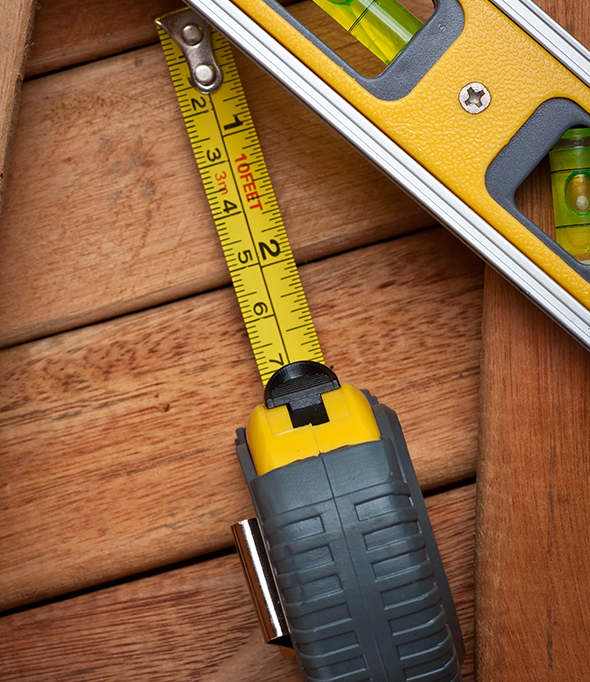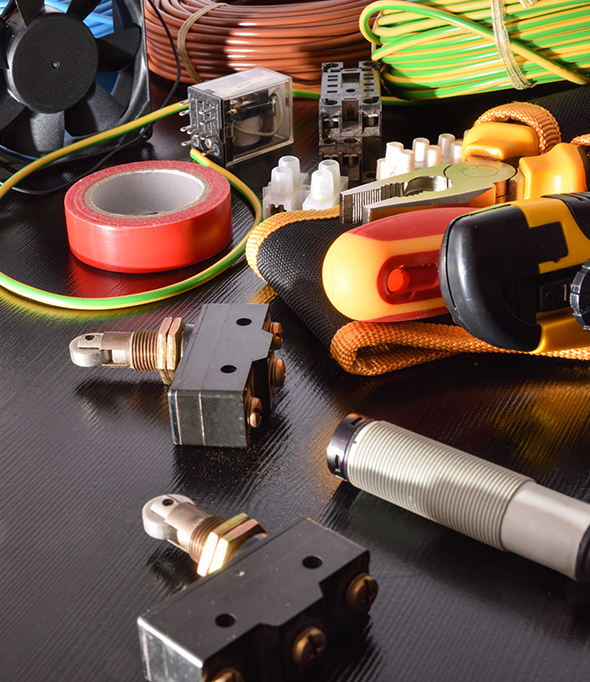Call us today for a free quote!
Reporting
Electrical Installation Condition Report (EICR)
An electrical installation condition report (EICR) identifies any damage, deterioration, defects and/or conditions which may give rise to danger along with observations for which improvement is recommended. It is a more detailed report than a Domestic Visual Condition Report and will involve the testing of various circuits which will require the turning off of the electrics at the main supply.
This allows the electrical contractor to identify any possible hidden defects or issues that cannot be identified during a Domestic Visual Condition Report.. The purpose of an EICR (also known as periodic inspection and testing of an electrical installation), is to determine, so far as is reasonably practicable, whether the installation is in a satisfactory condition for continued service. Homeowners often ask for, or obtain a condition report as part of a house sale. Similarly, landlords with an increasing awareness of their electrical safety obligations undertake regular periodic inspections in relation to their rental properties. There is no regulation on how often an electrical inspection should be carried out for the general public. However,it is recommended that an EICR is carried out every 10 years in a privately-owned home.
For rented properties this will be subject to different regulations and may need carrying out every 5 years. It is a mandatory requirement for Landlords in the private rented sector in England and Scotland to have electrical safety checks carried out in their properties. These electrical safety checks are to be carried out at intervals of no more than 5 years by a qualified and competent electrical contractor.
What will an EICR tell me?
An EICR will provide a full summary of the condition of the electrics in your home and determine whether it complies with the current BS 7671 Wiring Regulations.. It will record observations in line with the current edition of BS 7671 and make various recommendations where improvement may be necessary or beneficial to improving safety in your home. Once the EICR is completed the registered Approved Contractor will provide you with a report outlining the overall condition of the electrical installation. Generally, an EICR will provide codings against the condition of the installation.
The classification codes are as follows:
Code C1 - This code should indicate that danger exists, requiring immediate remedial action. The persons using the installation are at immediate risk.
Code C2 - This code indicates that, whilst an observed deficiency is not considered to be dangerous at the time of the inspection, it could become a real and immediate danger if a fault or other foreseeable event was to occur in the installation or connected equipment.
Code C3 - This code indicates that, whilst an observed deficiency is not considered to be a source of immediate or potential danger, improvement would contribute to a significant enhancement of the safety of the electrical installation.
Code F1 - This code indicates that further investigation is required without delay.
You are under no obligation to have any of the issues fixed, though it is essential that corrective action to rectify any C1 and C2s is completed without delay
I am looking to buy a property and would like to know the condition of the electrics?
Before purchasing a property it is always worth asking the current occupier if they have any electrical installation certificates or a current EICR. This will give you an overview of the current state of the electrics in the property. If they do not have an EICR you could request that one be carried out with costs to be agreed between either party.
YOUR GUIDE TO ELECTRICAL WORK IN THE BATHROOM
BATHROOMS ARE INCREASINGLY BECOMING AN IMPORTANT FEATURE OF ANY MODERN HOME. As a relaxing sanctuary from busy life, they are getting bigger and better, with separate showers, oversized tubs, sauna rooms and even televisions...
This means that certain electrical work carried out in a bathroom must be notified and signed off by a local building control department so that it meets the appropriate safety standards.
The best way of meeting the requirements is to use an electrical contractor who is registered with a competent person scheme.
They can self-certify the work and notify the local building control department on your behalf.
I want to fit a new bathroom. What do I need to know?
Due to the increased risk of water mixing with electricity the bathroom is potentially one of the most dangerous rooms in the home. The chances of an electric shock occurring in the bathroom are increased and so due care must be taken when dealing with remedial or building work in this area. It is vital that all work undertaken is carried out in accordance with the current wiring regulations to ensure maximum safety. The risk of injury or death from an electric shock is greater than the risk from using electrical equipment indoors. Speak to a member of our team or your local registered electrical contractor before any work to upgrade your bathroom commences, particularly if you are installing a new shower, lighting or heating system. They will be able to advise you of the appropriate steps that need to be taken and ensure the work is carried out to the highest standards. They can self-certify the work (if required) and notify the local building department on your behalf once the work is completed.
How do I know if my bathroom electrics are safe?
If there is noticeable damage to sockets, the shower or heating then it could be a sign that your electrics need checking. If you have any concerns regarding the electrics in your bathroom or home, then you should call a registered electrical contractor.
How can I get my bathroom checked for electrical safety?
You should contact our team or your local registered electrical contractor and ask them to carry out an electrical inspection (sometimes known as a periodic inspection). Much like an MOT, this is an inspection of the current condition of an electrical installation in your home. On completion of the inspection, you will receive an Electrical Installation Condition Report (EICR) detailing any damage, deterioration, defects, dangerous conditions and anything not in line with the present-day safety standard which might give rise to danger.
What happens if something goes wrong?
All NICEIC registered electrical contractors are covered by the Platinum Promise – a promise that protects you against all non-compliant installation work.
YOUR GUIDE TO ELECTRICAL WORK IN THE KITCHEN
More than half of all accidental house fires start in the kitchen.
Government statistics show that the largest number of accidental reported fires caused by electricity in the home is due to people misusing electrical cooking appliances.
Here are some simple safety tips:
● Don’t leave electrical appliances like dishwashers or washing machines running unattended
● Don’t wrap flexible cables around any equipment when it is still warm Check that flexible leads and appliances such as kettles and toasters are in good condition
● Don’t try to clean or repair an appliance when it is still plugged in
● Never try to get toast that is stuck out of a toaster while it is plugged in, and especially not with a metal knife as there are often live parts inside
● Make sure you thoroughly clean your oven and grill – a build up of fat and grease is a major cause of fires
● Check your plug sockets are not overloaded with too many electrical appliances as this can lead to overheating
● Avoid storing objects on top of appliances like the microwave, which can block ventilation
● Defrost your fridge and freezer (if applicable) at least once a year to ensure these appliances continue to work properly
● Make sure you have a working smoke detector in case something does go wrong
I want to fit a new kitchen. What do I need to know?
Certain electrical work carried out in the kitchen must be notified to the local building control department so that it meets the appropriate safety standards. Speak to the kitchen fitter or to your local registered electrical contractor before any work to upgrade your kitchen commences.
Find out if the work needs to comply with Part P of the building regulations (England & Wales only) and that the appropriate notification and certification will be taken care of once the work is completed.
The best way of meeting the requirements is to use an NICEIC registered electrical contractor. They can self-certify the work and notify the local building control department on your behalf, if required.
● How do I know if my kitchen electrics are safe?
If an appliance keeps tripping or there is noticeable damage to sockets, plugs, wiring or fittings or they look very old then it could be a sign that your electrics need checking. If you have any concerns regarding the electrics in your home then you should look to call a registered electrical contractor.
Benefits of choosing us?
Excellent Ratings
Vastly Experienced
Quality Workmanship
Accurate Quotations
Reliable Service

Need some help?
Got a question? Fill out the enquiry form below and we'll do our best to get back to you ASAP.

